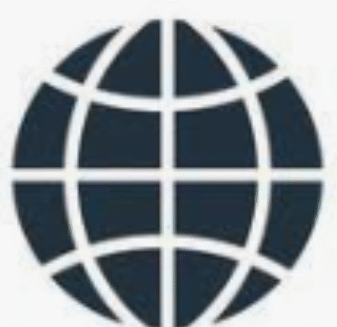Table of Lists
Reasons why Lithuania, in 2025, fascinates corporate houses, especially Indeed, Lithuania is small, but it certainly has great appeal; much as the Gediminas Tower dominates Vilnius, the same is true of the business attractions: As a starting point into the EU cage, 2025 I mean, shows value. It therefore also opens its doors for a gross market of about 450 million people. All of this in a fantastic environment for business: cheap taxes, tech-savvy politicians, and a tech-hungry society. A fintech aiming to effectuate international payments or a manufacturing company considering building up a facility for the Baltic region, Lithuania is a great choice-grounded yet future-forward.
An Opportunity Center of Innovation
With more than 250 fintech companies based in Lithuania, the country’s reputation as a fintech powerhouse is only going to get more famous in 2025. Regulator of the state, the Bank of Lithuania, promotes an atmosphere where businesses may flourish; for instance, it has set aside sandbox programs to test ideas free from bureaucracy. It also boasts among the lowest corporate tax rates in the EU, just 15%. Companies are flocking to familiarize themselves with Vilnius and Kaunas and open locations of business there, not surprisingly. Here is where a business might savor coffee in an Old Town café while planning its next major European investment.
Procedures for Establishing a Lithuanian Company
Lithuanian corporate Starting a business in Lithuania is like discovering a well-traveled road across Dzukija’s forests: clean, easily accessible, and quite profitable. This is how companies might do it in 2025:features of Lithuania’s corporate development this year. Faced with a slowing global economy, Lithuanian companies leaned on sustainability, smart automation, and talent development to keep expanding. Government-backed innovation programs and EU-funded projects gave startups and scale-ups both more support. Corporate leaders are thinking broader, and their aspirations now often transcend the Baltic region; there is clearly confidence in the air.
Choose the correct business structure.
Lithuanian corporate Choosing a structure that fits the company’s image comes first, much as deciding where would be ideal for a picnic near Lake Galvė. Foreign companies most often choose the private limited liability entity UAB (Uždaroji Akcinė Bendrovė). It gives small to medium companies flexibility and calls for a minimum share capital of €2,500. Other choices are a sole proprietorship for smaller businesses or an AB (public limited company) for bigger companies. While a trading company in Klaipėda would consider an AB for larger operations, a tech company in Kaunas might opt for a UAB to maintain a lean structure.
Documentation of the Company Name
The firms then have to choose a name no less distinctive than a Lithuanian folk song. The name must be verified for availability using the Lithuanian Enroll of Legal Entities to guarantee it is not too close to the names of any current companies. This process will take up to one or two days and will be completely online in 2025. Businesses typically choose a name that honors their background, such as amber, the Baltic treasure, but keep it simple for the EU stare-down.
Preparation of Paperwork
Getting paperwork is like preparing for a Lithuanian midsummer celebration—everything has to be in order. 2025’s requirements are as follows:
1. Signed by every
Stakeholders and outlining the goals, policies, and organizational structure, the Articles of Association
2. Shareholder Information:
Details about the firm’s owners, including residences and passports.
3. Enrolled Address:
A physical site in Lithuania that, should the company operate from abroad, might be a virtual office in Vilnius.
4. Share Funds:
Usually housed in a temporary bank account, proof of at least a €2,500 bank deposit for a UAB in Lithuania.
Depending on the specifics of their nation, overseas businesses may need notarizations of the above and translations. Just a formality to maintain order.
Send and Register
Equipped with documentation, businesses can make their request to the Register of Legal Entities either online or at a local office in locations such as Šiauliai or Panevėžys. The process is quick in 2025—often just 3–5 business days. Officially starting the company, the Register issues a firm enrollment certificate, a VAT number (if applicable), and a distinctive business code.
Create a bank account open-minded.
Without a bank account to handle its money, no institution is whole. From established companies like SEB to fintech stars like Revolut Business, Lithuania’s banks extend open arms to welcome new businesses. The procedure calls for organization paperwork and confirmation of enrollment and reflects the one described in previous manuals. Many banks will have multi-currency accounts in 2025, ideal for a company paying suppliers in euros one day and Nordic krona the next.
Benefits of Starting in Lithuania
Lithuanian corporate: Why would one select Lithuania for business establishment? The advantages abound, much as wildflowers in Aukštaitija National Park. Entry into the European Union Market With perfect access to the single market of the EU, a Lithuanian company finds trading with nations like Germany or Sweden as simple as a boat trip across the Curonian Lagoon. For a logistics company sending goods to France, businesses can use EU trade agreements, access financial programs, and run under consistent rules. Low Prices and Strong TalentCompared to Western Europe, Lithuania provides a reasonably priced foundation. Vilnius’s office rentals are a fraction of those in Paris, and the 15% corporation tax rate leaves more opportunity for expansion. The nation also boasts a trained workforce; consider tech graduates from Kaunas University who speak English fluently and are keen innovators. Top talent is something a startup can acquire without going broke.
Low Prices and Strong TalentCompared to Western Europe, Lithuania provides a reasonably priced foundation. Vilnius’s office rentals are a fraction of those in Paris, and the 15% corporation tax rate leaves more opportunity for expansion. The nation also boasts a trained workforce; consider tech graduates from Kaunas University who speak English fluently and are keen innovators. Top talent is something a startup can acquire without going broke.
An Ecosystem Designed for Fintech Friends
Lithuania’s playground is tech-driven businesses. While its fintech centers in Vilnius offer networking possibilities, the nation’s sandbox programs will let businesses test financial products in 2025. Knowing the government has its back, a payment processing company can test blockchain ideas here.
A Few Things to Remember.
Lithuania is a delight, but there are a few obstacles to keep an eye on. Though most officials understand English, some documentation may call for Lithuanian translations; hence, language can be a small obstacle. Companies hiring employees have to also register with the State Social Insurance Fund (Sodra) and follow local labor rules. Last but not least, smaller companies may be under first investigation to make sure they are not shell businesses; hence, openness is absolutely important.
What’s Fresh in 2025?
This year, the nation has made definite even more flawless creation. The government has reduced paperwork by introducing completely digital enrollment for UABs. Additionally, on the rise are sustainability incentives; companies in green technologies, such as a solar panel producer in Alytus, might get tax benefits. Lithuania has also become a hotspot for entrepreneurs since the EU is promoting digital innovation, and Lithuania has increased its support of startups.
A Baltic Springboard for Achievements
Starting a company in Lithuania in 2025 is like planting seeds in rich soil—a chance to flourish in a nation that supports corporate aspirations. This Baltic country provides businesses with a basis for success thanks to simple establishment, access to the EU, and an active tech scene. Companies can make their Lithuanian endeavor a thriving reality by following the guidelines, being compliant, and seizing the possibilities. Now is the ideal moment to establish roots as Lithuania keeps blossoming as a European hub.
Strategic positioning
Inside the European Union, Lithuania’s corporate scene in 2025 as one of rapid expansion and innovation. The country’s dedication to creating a business-friendly climate, combined with infrastructure and technological investments, has positioned it as a rising center for several sectors.
From setting satellite offices in Western Europe to creating joint ventures with businesses in Asia and the United States, internationalization is no more a dream—it is a reality we live with. Offering not only logistical ease but also a secure, tech-forward corporate environment, this global view has helped Lithuania establish its reputation as a great gateway between East and West.
Economic Outlook
Strong private consumption and a comeback in investments are expected to produce 3% growth in Lithuania’s economy by 2025. While unemployment rates should drop to 7.0%, inflation is forecast to level at 1.7%. These measures show a strong economy ready for continuous expansion.
co-investing.eu +1 economics-finance. europa.EU +1 European economy-finance. Europa.eu
Dynamic Startup Ecosystemum
Particularly in fields such as fintech, cybersecurity, medtech, and green technology, Lithuania has become a powerhouse in the startup industry. Notable companies such as Nord Security and Vinted have become well-known abroad. With projects like Cyber City and Tech Zity reusing Soviet-era factories into contemporary tech campuses, Vilnius, the capital city, is turning into a tech center.
China-CEE.EU China CEU + 2 business Insider.com +2investlith Lithuania.com +2
Developments in corporate services
Employing more than 26,500 people and showing amazing endurance, Lithuania’s Global Business Services (GBS) sector combines strong digital infrastructure with the multilingual and highly educated population of the nation, attracting global company operations here. Invest Lithuania.com +2 investlith Lithuania.com+2 investlith Lithuania.com +2mondaq.com
Talent drives all of this development. Many of the Lithuanian professionals who studied or worked overseas are returning with entrepreneurial drive, skills, and contacts. This produces a dynamic company culture that welcomes change as well as legacy. Lithuanian businesses are setting benchmarks that others in the region are starting to follow as corporate governance standards climb and sustainable practices go mainstream.
Strategic Defense and Manufacturing
Spending Programs Lithuania has strengthened its defense industry in reaction to the dynamics of regional security. Significant investments in ammunition manufacturing facilities result from joint projects with foreign defense businesses as Rheinmetall and Northrop Grumman. By means of employment creation and technological innovations, these achievements not only improve national security but also boost economic growth. wsj.com. +2 CEU, China-cee.eu +2 apnews.com. +2 wjs.com +2 AP NEWS.com +2 Reuters.com
+2.
Improvements in Connectivity and Infrastructure
To match its economic aspirations, Lithuania is extensively funding infrastructure. By 2030, Vilnius International Airport’s growth hopes to greatly raise passenger capacity. Furthermore, improving rail connectivity throughout the Baltic region will be the Rail Baltica project, thereby promoting trade and mobility. solar.co.uk
Not less important is the way Lithuanian companies are forging significant worldwide alliances. From setting satellite offices in Western Europe to creating joint ventures with businesses in Asia and the United States, internationalization is no more a dream—it is a reality we live with. Offering not only logistical ease but also a secure, tech-forward corporate environment, this global view has helped Lithuania establish its reputation as a great gateway between East and West Lithuanian corporate
Government Incentives and Support
Lithuanian corporate The Lithuanian government provides subsidies, tax advantages, and simplified administrative procedures, among other incentives meant to draw investment. From technology to manufacturing, these policies are meant to inspire creativity and help several sectors flourish.
investliths Lithuania.com
Talent drives all of this development. Many of the Lithuanian professionals who studied or worked overseas are returning with entrepreneurial drive, skills, and contacts. This produces a dynamic company culture that welcomes change as well as legacy. Lithuanian businesses are setting benchmarks that others in the region are starting to follow as corporate governance standards climb and sustainable practices go mainstream.
Final Notes
Strategic projects Lithuania has set for 2025 highlight its dedication to economic development, creativity, and global market integration. Leveraging its trained labor, modern infrastructure, and government policies that encourage development would help the nation keep its corporate sector on its upward path.
2025 has essentially shown that Lithuania is no longer only “emerging.” It has surfaced. Driven by innovation, global thinking, and a dedication to long-term value, its corporate development is distinguished from fast, chaotic expansion by careful, deliberate growth.
Conclusion:
Lithuania’s corporate sector has made it abundantly evident, as 2025 advances, that it is a force to be reckoned with in the larger European economic ecosystem, not only a rising participant on the Baltic scene. Once a market noted for its cautious, post-Soviet restructuring, it is nowadays a vibrant area for innovation, digitalization, and cross-border cooperation. Lithuanian businesses are not happy to merely catch up; many are starting trends, especially in fields such as fintech, biotechnology, renewable energy, and digital services.
Lithuanian corporate The speed with which businesses have responded to both technical changes and economic difficulties has been one of the defining features of Lithuania’s corporate Faced with a slowing global economy, Government-backed innovation programs and EU-funded projects gave startups and scale-ups both more support. Corporate leaders are thinking broader, and their aspirations now often transcend the Baltic region; there is confidence in the air.https://worldinfoes.com/wp-admin/post.php?post=161&action=edit
FAQs
Q1: Which industries will propel Lithuania’s economic development forward?
Key areas include technology startups, finance, cybersecurity, military manufacturing, global business services, China-CEE.EU
Q2: In what ways is the Lithuanian government helping outside investors?
Employing grants, tax incentives, simplified administrative processes, and public-private alliances meant to create a climate fit for investment.
Q3: Underlying economic development, what infrastructure initiatives are underway?
Important initiatives include the Rail Baltica railway project and Vilnius International Airport development, therefore improving trade prospects and connectivity.
Thesun.co.uk +1
Invest Lithuania.com +1
Q4: Lithuania’s workforce development is being addressed, how?
To equip the workforce for new sectors, initiatives center on upskill programs, especially in digital capabilities and STEM domains.
co-invest in.eu
Q5: Why could startups find Lithuania appealing?
Among the factors are government incentives, advanced digital infrastructure, a trained and multilingual workforce, and a favorable legislative environment Lithuanian corporate.



